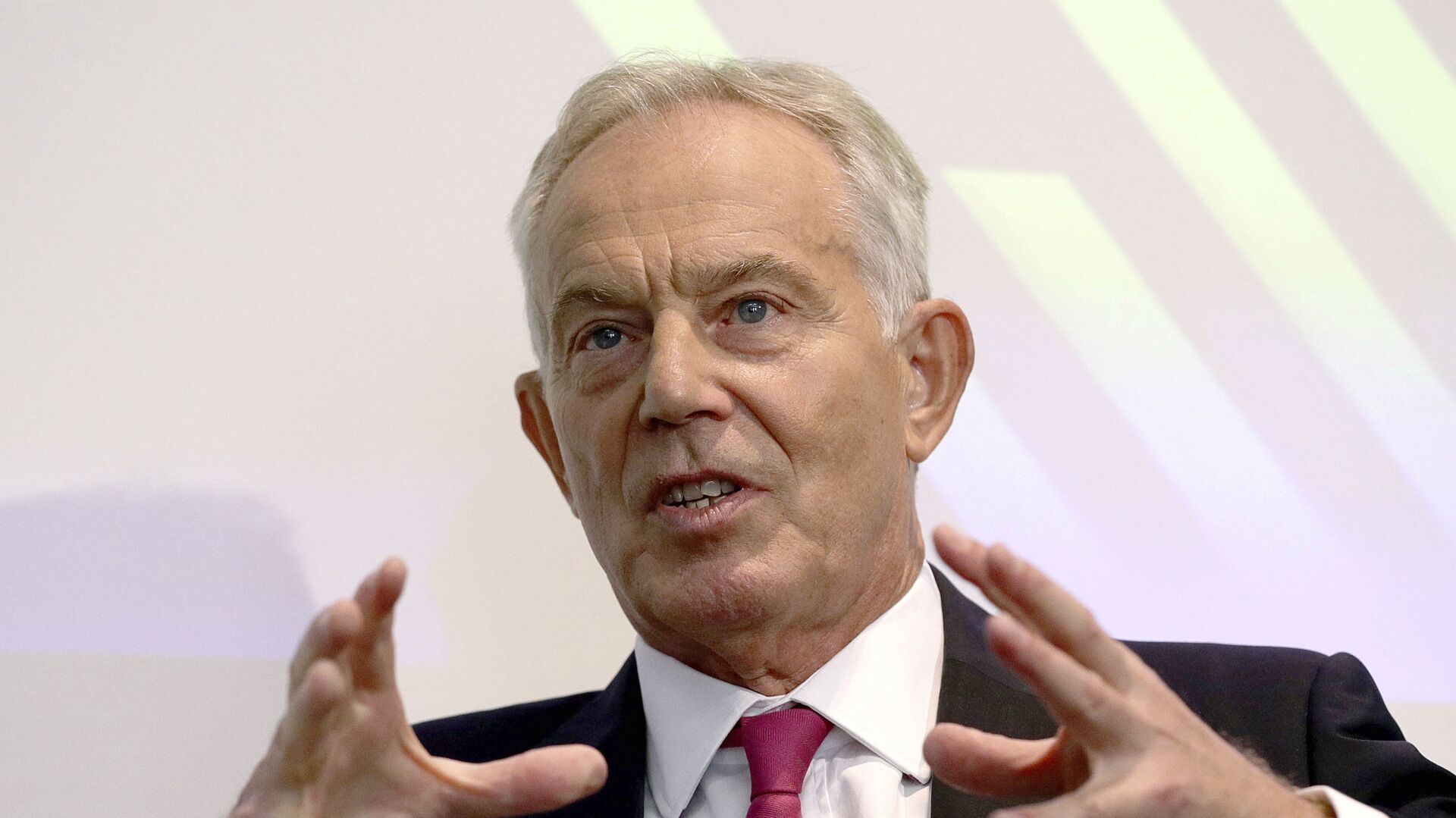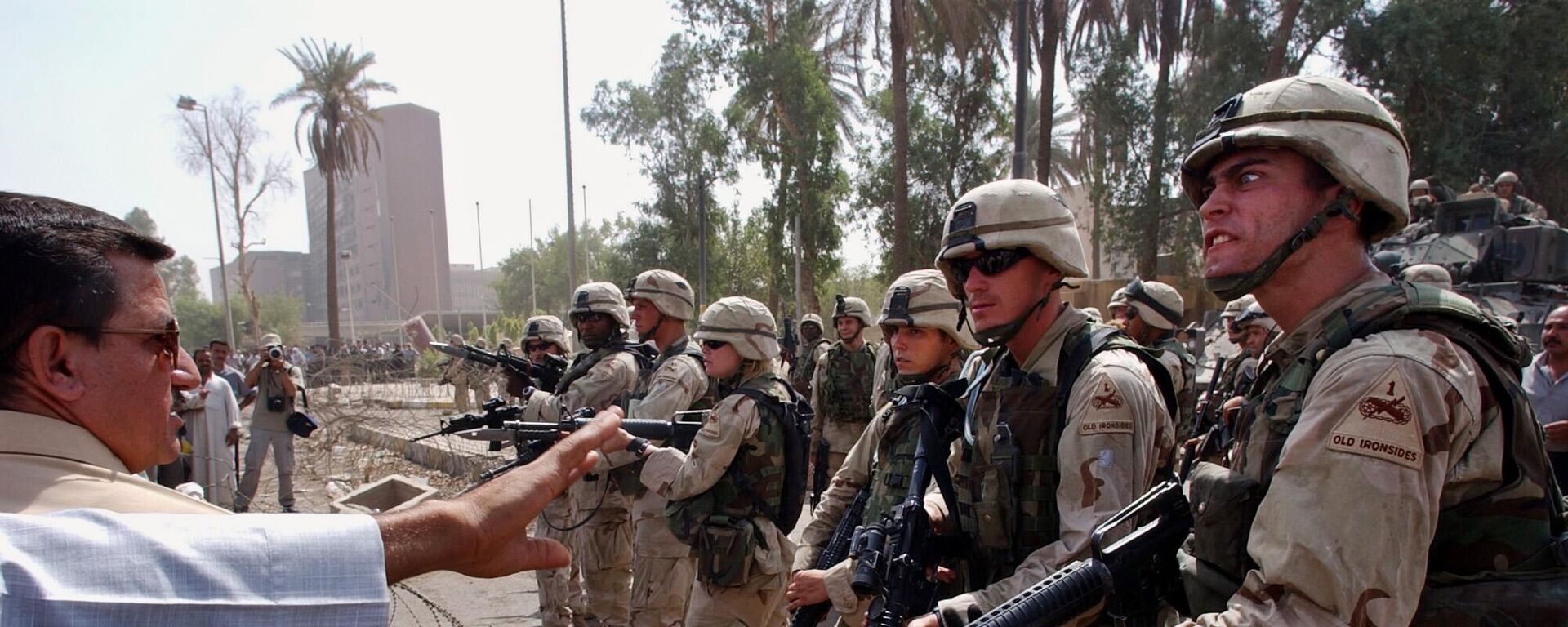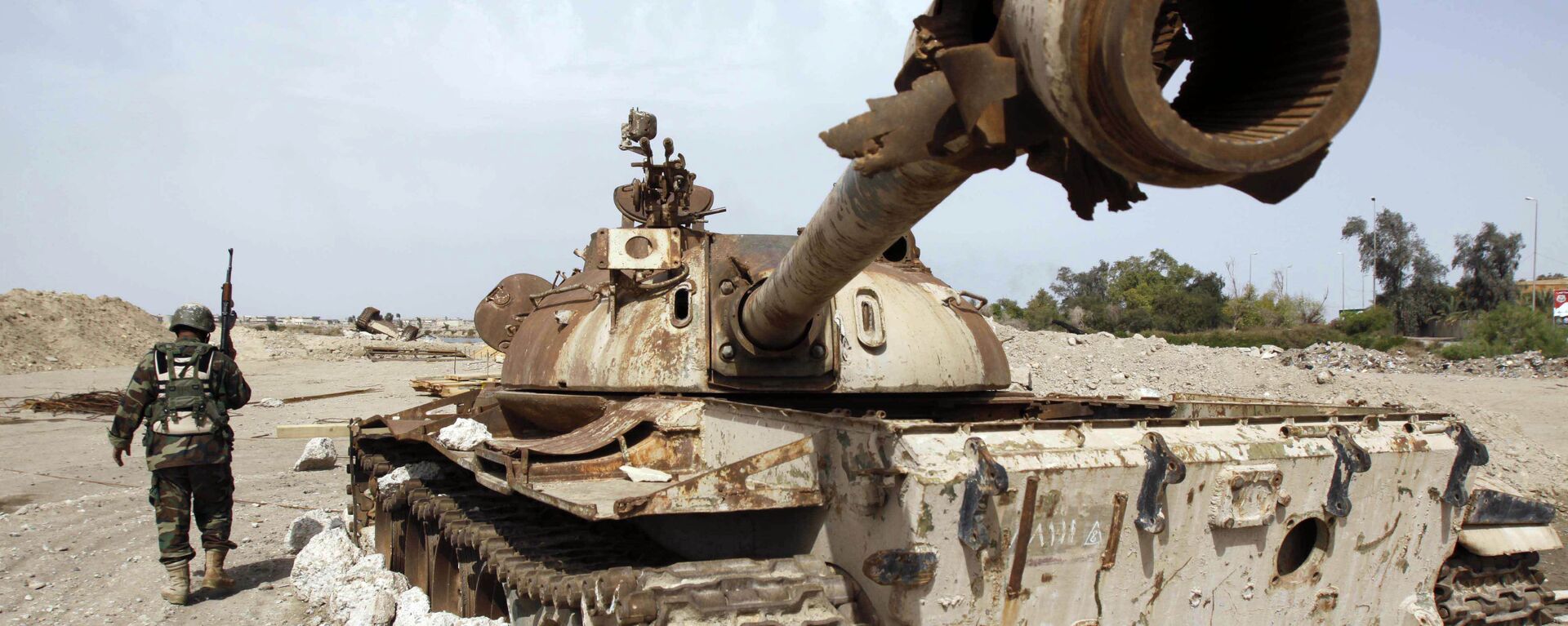Tony Blair Wrongly Told MPs UK Had 'Proper Legal Authority' for 1998 Iraq Airstrikes
16:49 GMT 17.04.2023 (Updated: 15:26 GMT 28.05.2023)

© AP Photo / Aaron Chown
Subscribe
Recently declassified files from the British government dating to 1998 show that then-UK Prime Minister Tony Blair lied to Parliament when he claimed his government had “the proper legal authority” to order airstrikes against Iraq.
When Blair announced the strikes to Parliament on December 17, 1998, he told MPs, “I have no doubt that we have the proper legal authority, as it is contained in successive [UN] Security Council resolution documents.” In fact, no such authorization for use of force was contained in any UNSC resolution, as Blair’s government well knew.
According to the files, which can now be found at the UK National Archives and have been reported in British media, the Labour government struggled through 1998 to find a legal argument to justify a bombing campaign against Iraq in response to then-Iraqi President Saddam Hussein refusal to cooperate with United Nations weapons inspectors to Western satisfaction.
Dubbed “Operation Desert Fox” by the US and UK militaries, the four-day air blitz against Iraq in December 1998 ostensibly targeted facilities used by Hussein’s government to manufacture weapons of mass destruction. The UN had called on Hussein to eliminate all his chemical and biological weapons and to end his nuclear weapons program, all of which featured heavily in the 1980-88 war with Iran. Large numbers were destroyed following the 1990-91 conflict over Kuwait, in which the US led a coalition of nations in a military campaign to reverse Hussein’s annexation of the Gulf emirate, but by 1997, Western frustration with his government’s refusal to cooperate with UN weapons inspectors in some areas and defiance of the US-imposed No-Fly Zone had begun to boil over.
That autumn, the US and UK began a buildup of more than 35,000 troops in the region, including strategic bombers and aircraft carriers, and Hussein relented, allowing UN weapons inspectors to return - a decision he reversed a few months later.
According to the declassified files, Blair’s government, which was closely aligned with the Bill Clinton administration in Washington, DC, had been searching for legal grounds on which to base new airstrikes against Iraq facilities.
One file dating to November 12, 1997, shows Blair’s private secretary, John Holmes, informing his boss that then-Foreign Secretary Robin Cook and British legal officials “are convinced we have a serious problem about using force unless the Security Council declares that Iraq is in ‘material breach’ of previous resolutions. That may be unattainable.”
“The lawyers will also be inclined to fuss constantly about how far whatever force we use is related to Iraq’s offense and proportionate,” Holmes added. “Like you, I have doubts about how far international law can really be used in the way the lawyers want to use it… but it will be very hard to dismiss the legal arguments altogether.”
Holmes then cautioned the prime minister that “it is probably sensible to prepare to deploy British forces” but noted that “we will need a careful press line.”
Two days later, Holmes also told the prime minister that “we can regard these legal arguments as misplaced but they cannot be ignored. The resignation of a Law Officer, if it came to that, would be pretty bad. They therefore need to be kept on board.”
“We must certainly try to consult them before we do anything serious, if at all possible, even if you have to override their views,” he added.
Holmes’ analysis was buttressed that same day by another communique from Attorney General John Morris, who told Blair that a “statement” from the UN Security Council was “an essential precondition” to using force against Iraq, although he noted that “exceptional circumstances could arise” in which the international community might agree that Baghdad “had in effect repudiated the ceasefire and that a resort to force … was the only way to ensure compliance with the ceasefire conditions.”
As military planning to strike Iraq continued into 1998, ministers considered the legality of allowing US aircraft to bomb the country using the British-occupied island of Diego Garcia, a military base in the Indian Ocean.
“The Law Officers are declining to give clearance to the targeting plans because, as set out in the Attorney General’s minute of 12 February to the prime minister, they do not feel that they are yet in a position to pronounce on the lawfulness of the overall operation,” Michael Pakenham, the chair of the Joint Intelligence Committee, told Holmes in a follow-up.
Pakenham advised Blair to speak with the Law Officers, a collective term for the UK”s attorney general, solicitor general and advocate general, but Blair wrote in a personal note to Holmes afterward that “I still find the law officers advice unconvincing.”
“There must at the very least be an argument that the SC [Security Council] has agreed there is a breach,” Blair told his private secretary. “The only issue is can we use force and why not if it is the only way to compliance.”
These debates continued through 1998 until that November, when the US came within a hair’s breadth of launching airstrikes until Hussein again agreed to allow in UN inspectors.
“The time had now come for military action to be taken against Iraq,” Blair told Cook, Defense Secretary George Robertson, and Chief of the Defense Staff Sir Charles Guthrie in a briefing just before Hussein backed down.
By then, Blair’s government had jettisoned any pretense of concern for legality, saying that force was justified “not because he [Hussein] was in technical breach of UN Resolutions but because he posed a real and imminent threat to peace and security in the region.”
Days later, a Cabinet Office note included in the declassified files said that “At present, the legal basis for military action in the event of further non-cooperation would rest on the Security Council’s ‘flagrant violation’ language in UNSCR 1205,” a resolution adopted weeks earlier amid the standoff that condemned Iraq’s failure to follow previous UNSC resolutions, but did not authorize use of force against the Mesopotamian country.
“If there is a next time, I will have no hesitation in ordering the use of force once again,” Blair told former foreign secretary David Owen in early December. Indeed, just over a week later, Blair would join US President Bill Clinton in ordering airstrikes.
Those strikes began on December 16, 1998 and lasted until the 19th and saw nearly 100 sites bombed by US and UK bomber aircraft, as well as cruise missiles launched from US Navy warships. As many as 1,400 Iraqis were killed in the strikes, with no losses on the US-UK side.
The strikes were highly criticized around the world, with US Arab allies refusing to cooperate with the operations. Many claimed the strikes had various other goals, including distracting the public from the ongoing impeachment proceedings against Clinton. William Arkin, a former US Army intelligence analyst, wrote in the Washington Post the following month that the strikes had been intended to wreck chaos in Iraq and further destabilize the government, which the US had begun actively seeking to overthrow by backing opposition groups.
Hussein’s government stood, however, and the crisis continued until a joint US-UK invasion in March 2003 overthrew his government completely, leading to a brutal eight-year-long occupation war that killed more than 1 million people in the country.





